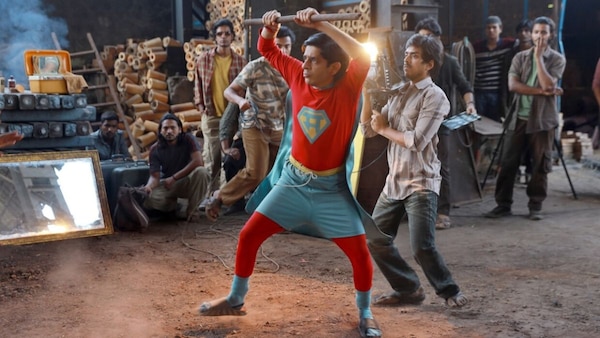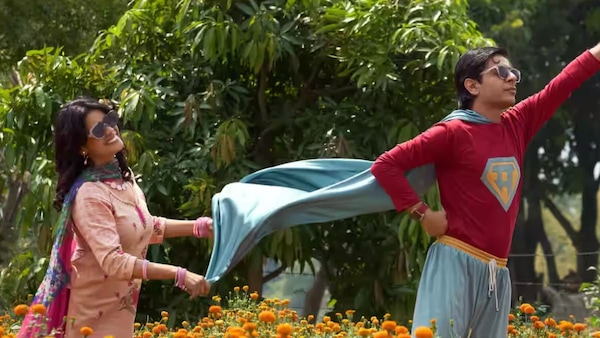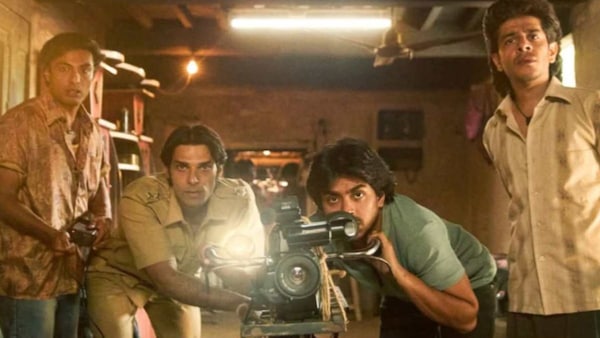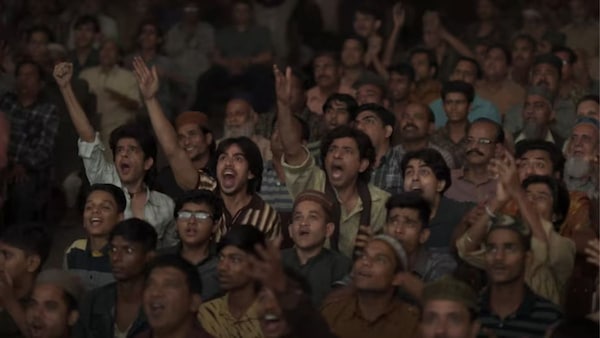Superboys Of Malegaon: A Charming Love Letter To Cinema
Reema Kagti’s Superboys of Malegaon is blatant in its love for the movies, obvious in its messaging and overt in its homage. The tenderness is so apparent that there is little space for scrutiny.

Still from Superboys of Malegaon.
Last Updated: 06.41 PM, Feb 28, 2025
EVERYTHING in Superboys of Malegaon gets better with the mention of cinema. A dying man is told about his cancer diagnosis as something that happened to Rajesh Khanna in the film, Anand. Two sparring friends reconcile only to make a film together. A city gets its identity through cinema, and a man nurses his broken heart by sitting through films that he and the woman he was in love with, used to watch together. Later, we know he has moved on when his wife helps him make his film and he agrees.
Reema Kagti’s new directorial film is an effusive love letter to films and filmmaking. A premise such as this is not an anomaly. The landscape of Hindi cinema is dotted with filmmakers making anecdotal and meta references and films suffused with the aching struggle of people wanting to make it big in the industry. Beyond the sheen of conceit and resentment, one is prone to stumble upon love but the surface needs to be scratched first.

Superboys of Malegaon wears no cover. Kagti’s film is blatant in its love for the movies, obvious in its messaging and overt in its homage. The tenderness is so apparent that there is little space for scrutiny.
The story revolves around a group of boys in Malegaon, a small city in Maharashtra, whose identity comprises watching films. They run several makeshift errands but their main job is sitting in the darkness of theatres.
Nasir (Adarsh Gourav) runs a video parlour at Malegaon with his brother. Unlike the latter who is content with people buying tickets, Nasir wants to cultivate their taste. He wants to show Buster Keaton and Charlie Chapin films to the neighbourhood. The lack of audience discourages him till an editing hack (learnt during a screening of Raja Hindustani) props up an idea. Why not splice up different films and make them into one? The idea is a hit till a police raid happens. Undeterred, Nasir then decides to make his own film.

Within this set-up, Superboys of Malegaon unfolds as multiple love stories. A director’s self-absorbed love to see his work on the big screen, a writer (Farogh, played by the excellent Vineet Kumar Singh) and deep love for the medium emboldening him to pursue his own path, a reticent man (Shafeeq, essayed by Shashank Arora) and his quiet love for the movies that helps him get through life, and a woman (Trupti played by Manjiri Pupala) and her independence afforded by acting.
The infectious charm of Kagti’s film (written by Varun Grover) resides in how every frame reiterates its love without biases. Superboys of Malegaon refuses to distinguish between high and low art as much as it declines taking sides between a compliant filmmaker and a self-respecting writer. Nasir’s parodies provide him a livelihood and later, another parody about Superman comes closest to immortalising someone’s life. The impartiality of the gaze feeds into the reading.

If most films engage in the exposition of what cinema means to people, Kagti’s finely crafted work looks into what it can mean. The makers remain as attuned to little things. The film takes place across 1997-2001 and the time span is showcased by changing posters of films and VHS giving away to CDs. The subtlety is in sync with the granular empathy that Grover extends to the characters, all graceful even in their bitterness. Even someone like Nasir, who remains ambiguous till the end, comes across as more preoccupied than selfish. A stray line about his father being a gambler further puts his character arc in perspective.
If Superboys of Malegaon evokes awe despite its charming underdog story it is because the origin is rooted to life. Kaagti’s film is derived from Faiza Ahmad Khan’s crackling documentary Supermen of Malegaon (2008). In the larger picture, it adds up. After all, beyond the excessive embellishments, Superboys of Malegaon is telling a familiar story: a country’s mad love for cinema and the relationship a community continues to share with it despite the medium working overtime to erase their identity.

 Premium
Premium